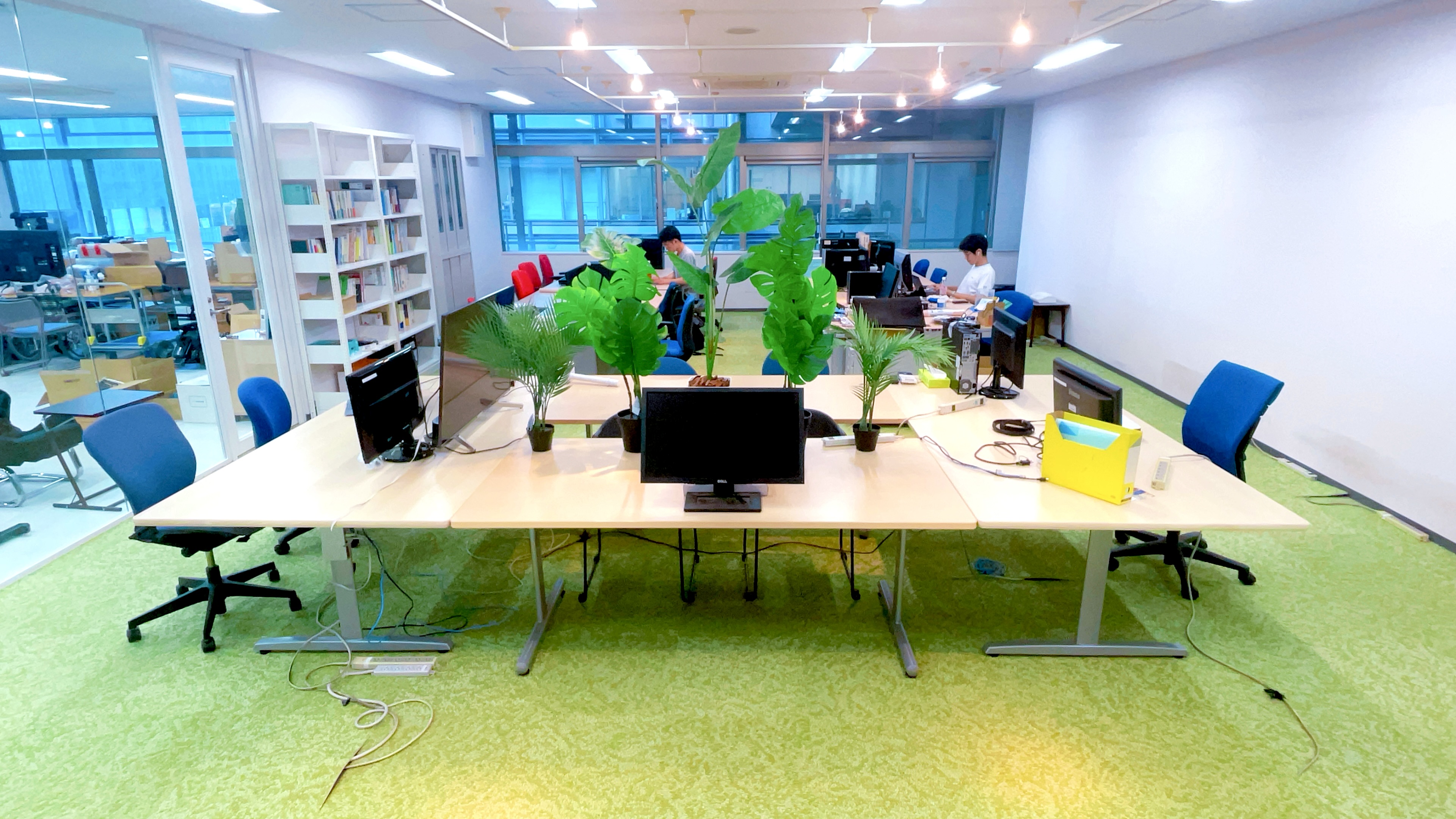Support independent living – Independence & Daily living
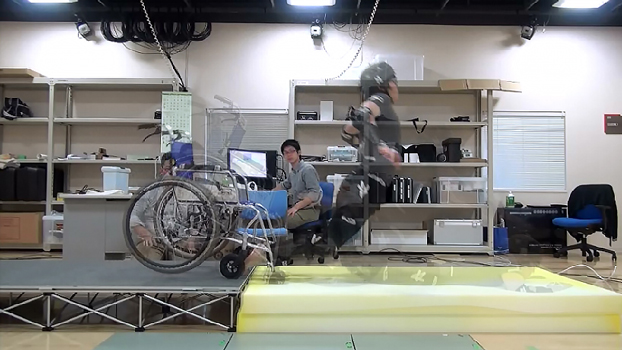
To develop equipment for elderly people and those with disabilities to support independent living, we conduct needs survey, new equipment proposal, and technology development. We also evaluate functions and comprehensive usability of equipment.
Key Words:
Support driving and movement- Mobility & Driving
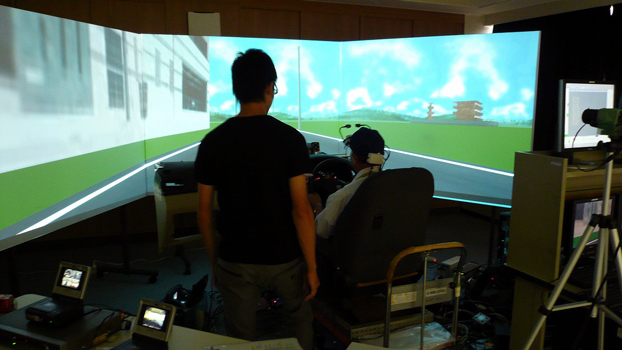
We are researching the following three: the driving support technology to reduce the number of car accidents of drivers including elderly drivers, driving education, and the mobility support in rural areas and reconstruction areas from earthquake. Additionally, we are researching the following three: the estimation of driver`s state from the automatic driving technique, the relevance between driving behavior and cognitive function, and the effective method of driving technique.
Key Words:
Support ease of use – usability & accessibility
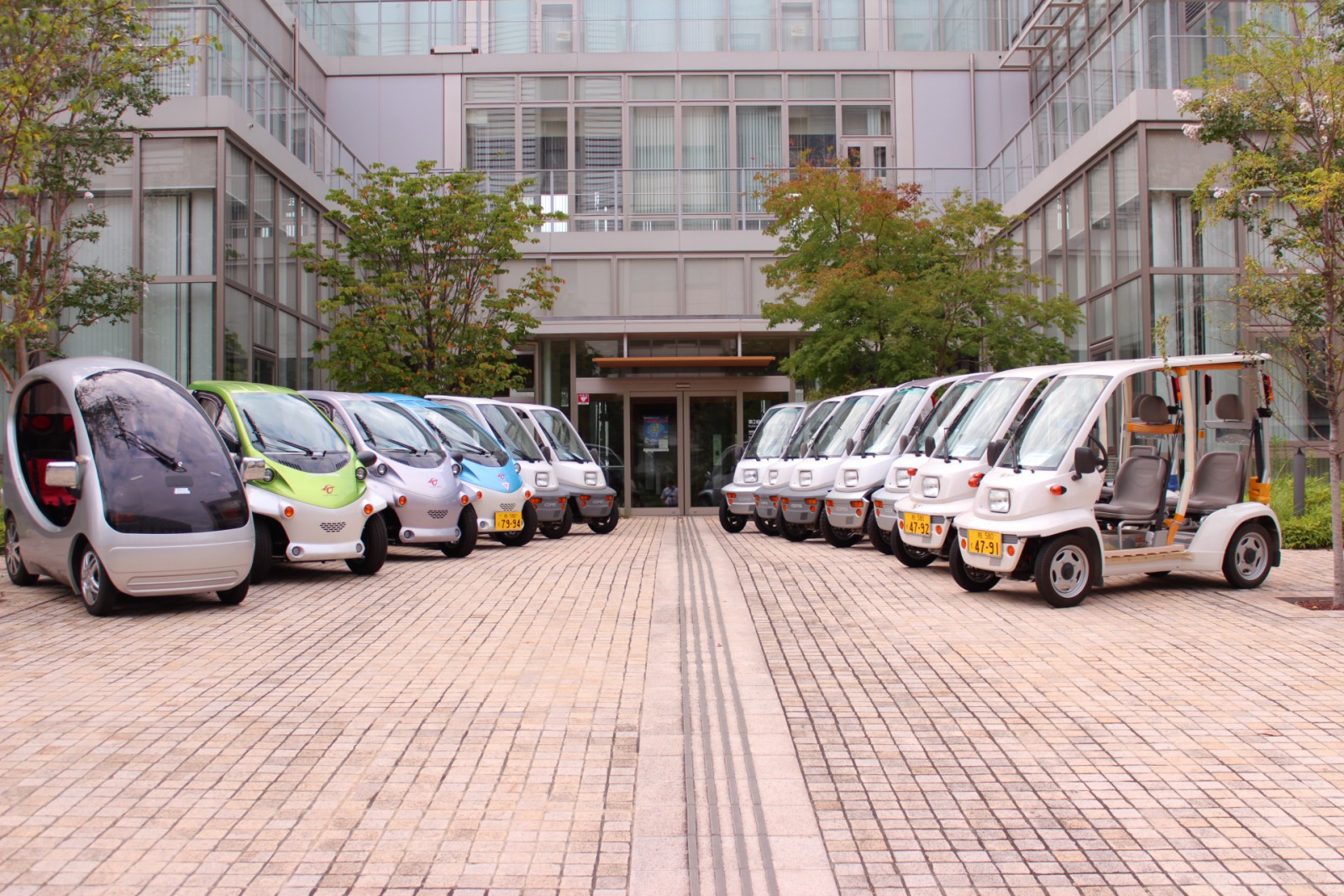
We are researching the usability adapted to the physical and mental functions and motions of human beings. We are making design, such as useful electronic devices, the way to get in and out of cars, and pet bottles to pour easily, based on the technologies of biometrics and motion measurements.
Key Words:
Introduction of Research
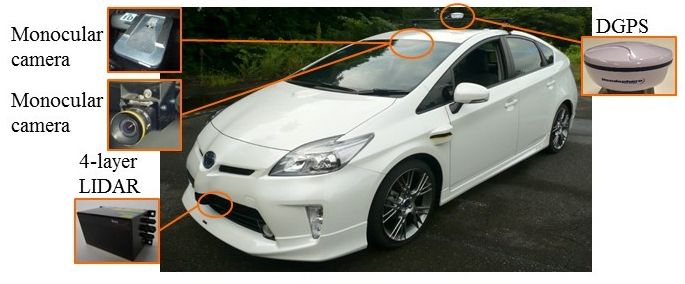
Research on advanced driving support using autonomous driving intelligence
Using a technology capable of autonomous operation, we are developing control interventions and collaborative operation systems to make driving that does not approach risks by using a technique capable of autonomous operation by modeling the operation of experienced drivers for safe driving support of elderly drivers and others. The point is to develop technology to realize pre-reading operation by using environmental information etc. rather than emergency danger avoidance and make it possible for drivers to accept intervention without discomfort from the machine side. This research is implemented as a project of S-Innovation of JST.
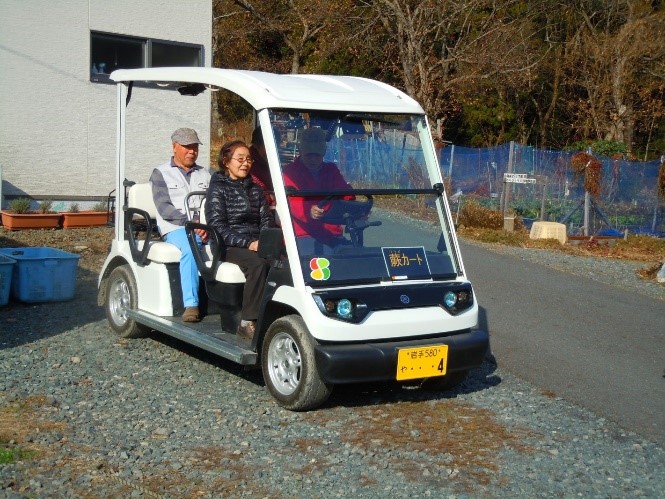
Study on traffic in reconstructing disaster area
Because of damage from Tsunami, so many people are now living in inconvenient temporary housing in disaster areas. We are researching about the traffic system which can be used by people whose mobility is restricted because of unable use of their cars, and because of this, frequency of going out and QOL have also decreased. For example, we are conducting researches about mobile supporting systems to improve the convenience of public transportation, and researches about utilization of moving vehicles such as personal mobility and golf cart in Kamaishi City and Ootsuchi Town, Iwate Prefecture.
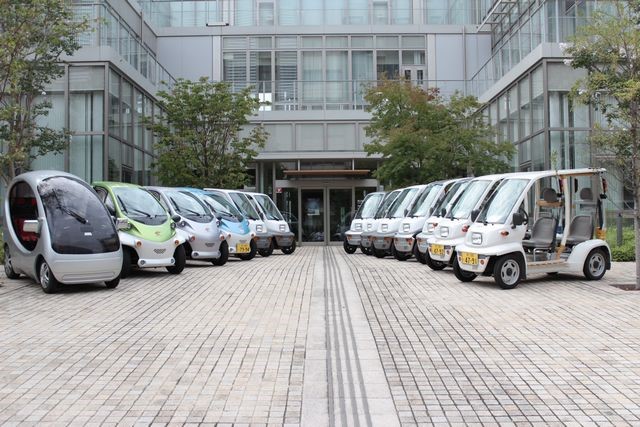
Research on utilization for Ultra Lightweight Vehicle
We are considering utilization of Ultra Lightweight Vehicle as a means to facilitate neighboring movement of elderly people and others. We are reviewing the feasibility of use by remodeling the vehicles so as to specialize them for long-term monitoring experiments and purposes, making Ohno City in Fukui Prefecture, Kashiwa City in Chiba Prefecture, Toyota City in Aichi Prefecture etc. as research fields. So far, we have demonstrated their use in forests, agricultural lands, etc., and for applications such as visits to hospitals and school gardens. In the future, we will create communities and revitalize the community by utilizing such moving tools.
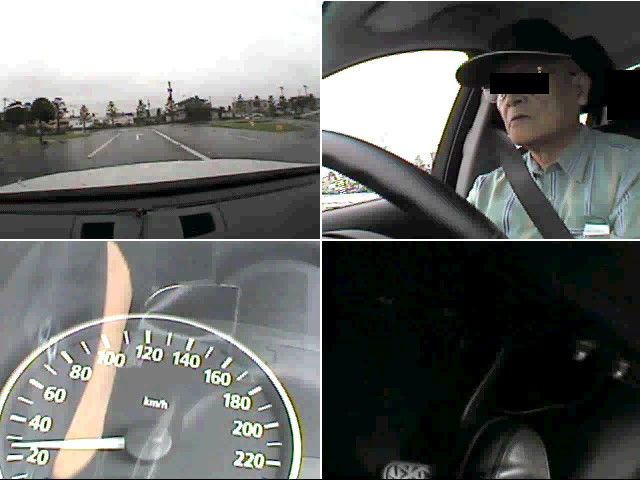
Study on elderly people quitting driving in rural areas
Today, elderly people have to quit driving someday. We are conducting research about that considering about the possibility of keeping them driving by teaching safe driving, and about the relevancy with the characteristic of mobile means after quitting driving in the areas. About the teaching of safe driving, we are proposing the education way making elderly people watch their driving objectively, and changing their thinking by showing accidents videos and near misses videos. About the characteristic of areas, we have conduced hearing investigations and questionnaires in some areas in Fukui Prefecture.
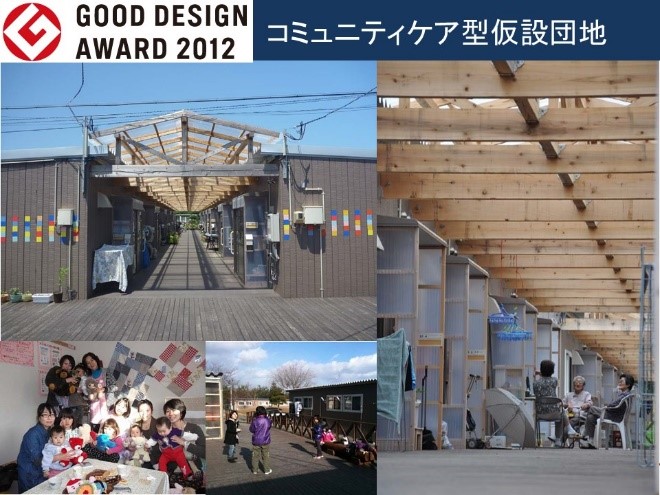
Research on gerontology
In Japan, which is leading the super aged society ahead of the world, it is necessary to make various aspects correspond to the aged society. As a member of Institute of Gerontology, the University of Tokyo, we are researching infrastructure, social system, etc. to realize such way of living of elderly people; active lives in rural areas of healthy and active elderly people, calm lives in the rural area of weak elderly people and so on. So far, we have been conducting action research such as social experiments with local residents and administration in Kashiwa City in Chiba Prefecture, Sakai City in Fukui Prefecture, Otsuchi Town in Iwate Prefecture, etc.
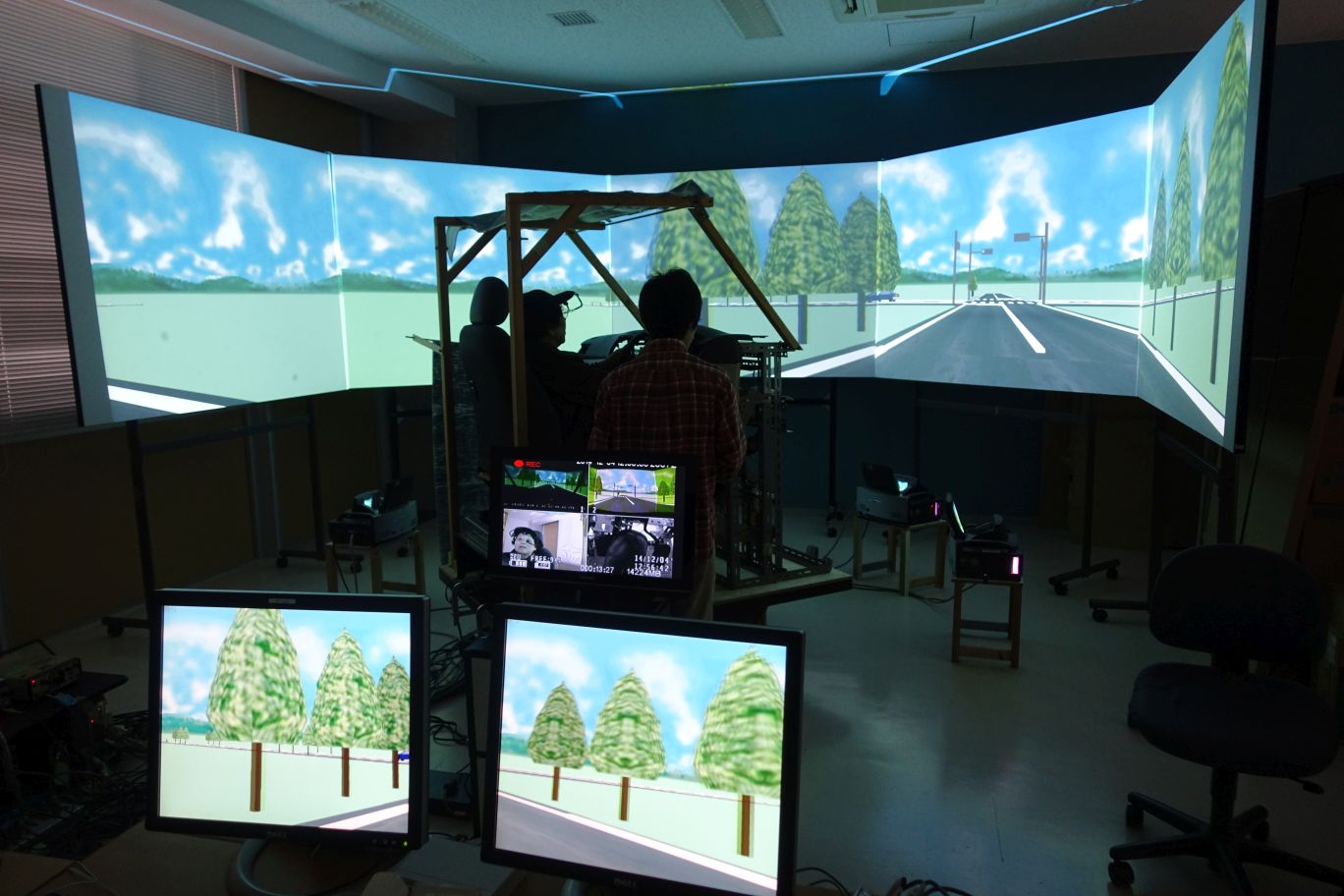
Driver assessment and design
Currently, traffic accidents are becoming a social problem, and it is required the advanced support adopted to the driver in order to prevent this problem. This laboratory aims to evaluate the state of the driver driving the vehicle appropriately and to make use of it in the design of the driving support system to prevent the occurrence of traffic accidents beforehand. In such efforts, we consider driving behavior to be an adaptive behavior to the traffic environment, we propose indices and methods that can evaluate driver status using not only driving behavior information but also surrounding traffic environment information.
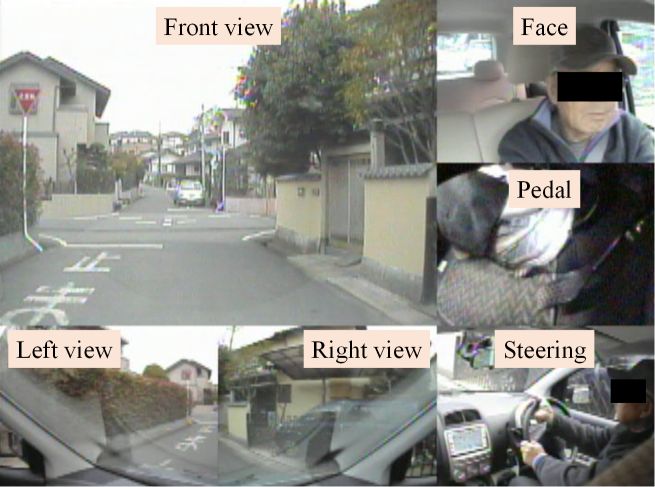
Grasp driving behaviors and monitoring
There are a lot of unsafe driving which lead traffic accidents, and grasping and analyzing those acts are a good way to prevent people from causing accidents. To grasp those unsafe acts while people are driving, we have developed two systems: an event type drive recorder which gather incidents when people press the brake strongly, and a constantly collecting recorder which can gather driving behaviors other than near misses. We have used data of near misses recorded with the developed recorder to elucidate the mechanism of accident and to realize safe movement of elderly people, and we have used data recorded with a constantly collecting recorder to research on driving behavior and recognition ability of danger.
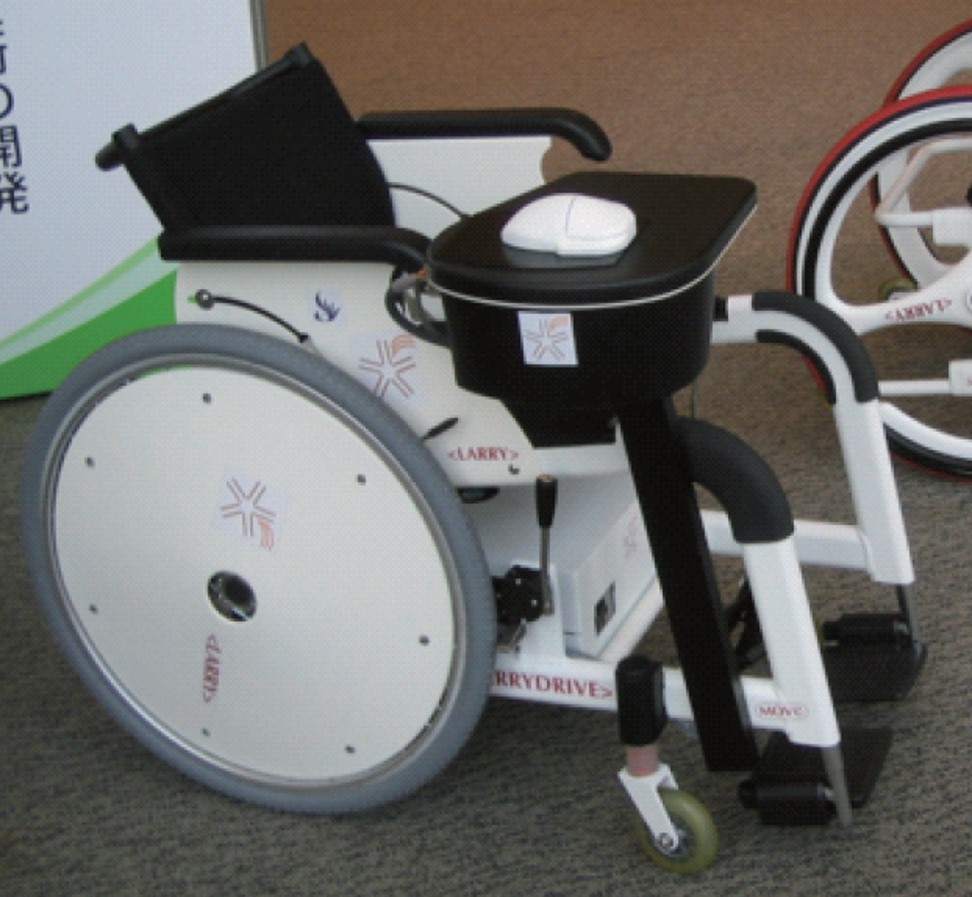
Support strategy aimed at improving collaboration and extracting user’s intention or will for disabled people and elderly people
The operation system of the mobility is an interface between a person and a vehicle, playing a role of transmitting the user’s intention or will to move to the vehicle. However, it is difficult for disabled people and elderly people to use general operation systems such as a joystick, so it is necessary to design in consideration of characteristics of users and mobility. In this laboratory, we are developing a force sense input device that can be operated even by a person who have difficulty in operating a joystick and developing a new input interface that considers remaining function of myotonic dystrophy patients, aiming at moving the target user and mobility in cooperation.
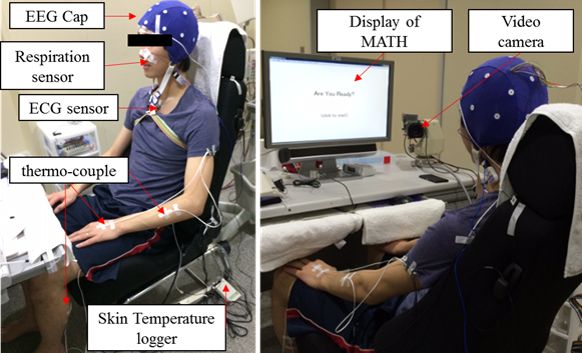
Study on state evaluation and environmental design using biological information
Today, the time people spend in indoor space becomes long. It is needed to make environment respond to requests from each life scene such as spaces where you can rest comfortably, or spaces where your performance is improved. In response to such a demand, we propose a method to evaluate quantitatively the state of a person such as comfortable degree, awareness degree, and concentration degree using various biometrics information such as brain wave, heart rate, respiration, and skin temperature. We aim to design environment based on those evaluation results.
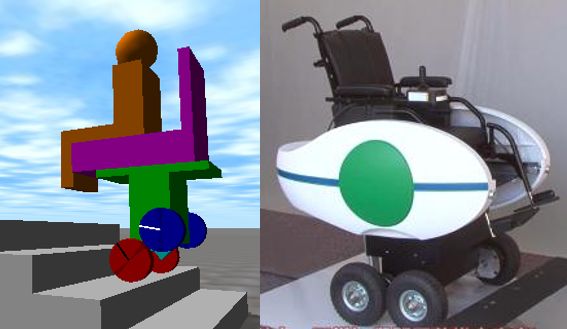
Study on barrier-free movement supporting technology to improve comfort
Although installation of elevators and slopes is proceeding as efforts to promote barrier-free, it can be said that it is impossible to eliminate all of stairs and bumps that hinder the movement of wheelchair passengers. Therefore, in order to improve the comfort of the movement of wheelchair users, we aim at the development of mobility that can go through stairs and bumps. We propose a new machine structure with multiple wheels, slider and height correction link, and develop and evaluate control logic by physical model simulation. In addition, we are carrying out a stair climbing experiment using the actual machine we developed.
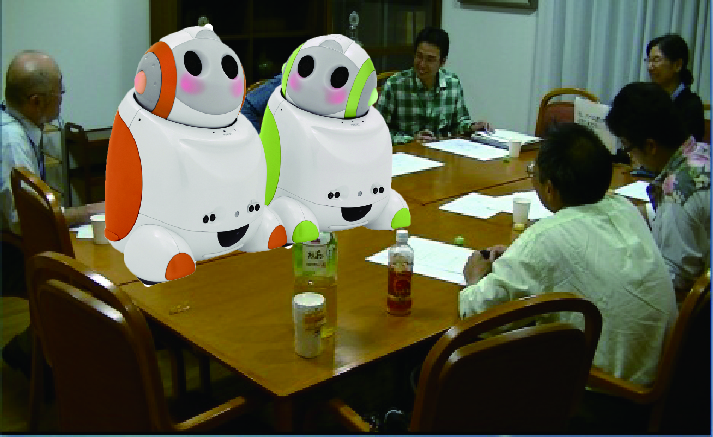
Research on information support technology and behavior support technology for elderly people and demented people
We aim to develop information support systems that can clearly and reliably inform important information indispensable to daily life with dialogue against memories that change naturally over age, such as memory loss, or cognitive declines due to dementia. Among them, we are advancing the following research; study of interfaces such as synthesized voice suitable for elderly people and demented people, study on mechanism to induce conversation, demonstration experiment to confirm the effectiveness by introducing the robot system in the daily life of elderly people and carrying out schedule and behavior support and so on.
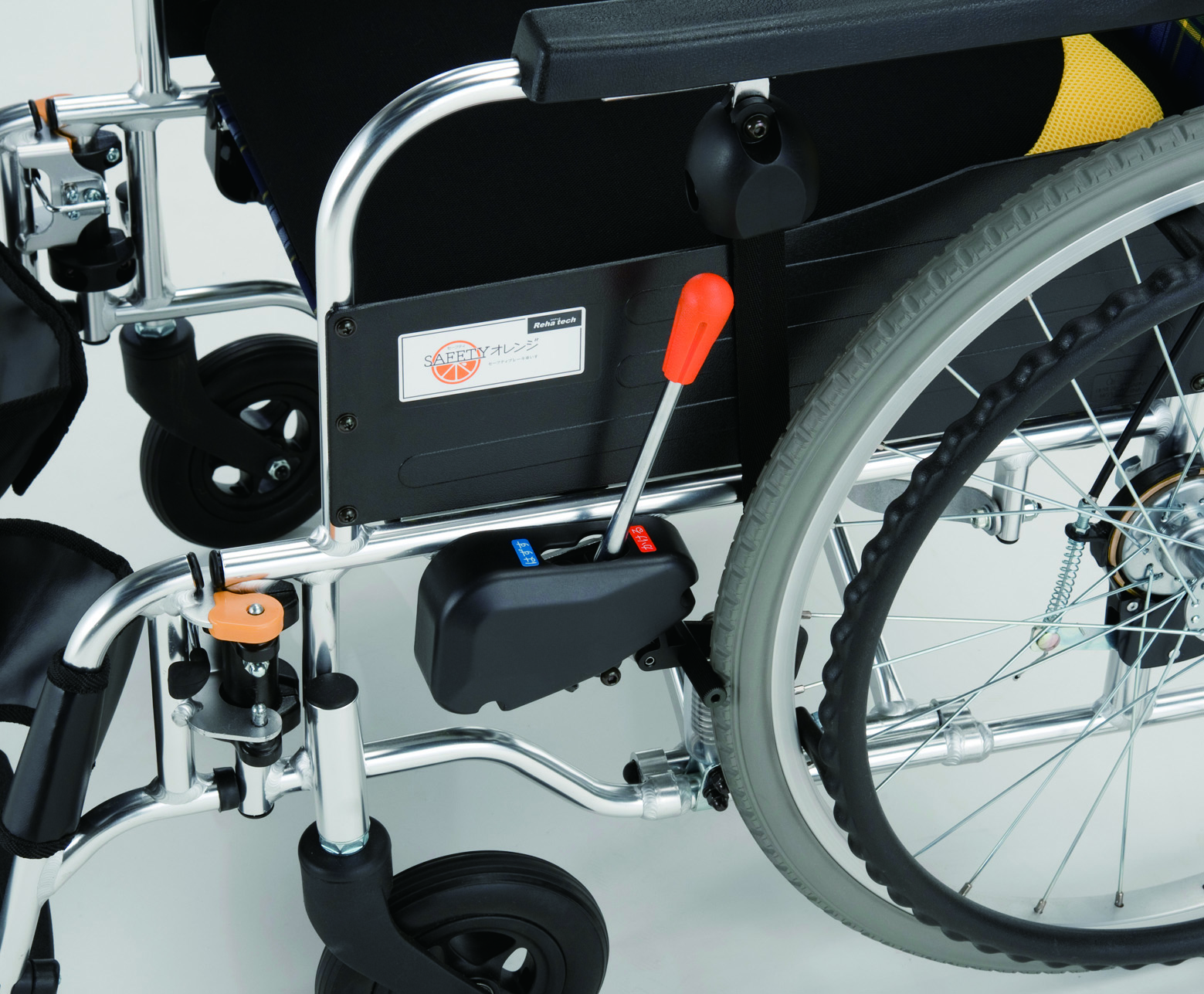
Study on evaluation of assistive devices
In order to develop effective assistive devices for users and promote their utilization, it is essential to assess the safety and evaluate under the usage situation and clinical situation. In this research, we conduct a nationwide survey on wheelchair falls, clinical evaluations using data logging systems, and simulation of fall risk, using cases of falls during the use of wheelchairs that occur frequently in elderly people. Furthermore, we are proposing comprehensive evaluation methods and development methods on safe use and utilization of assistive devices by developing and evaluating equipment that prevents falls.
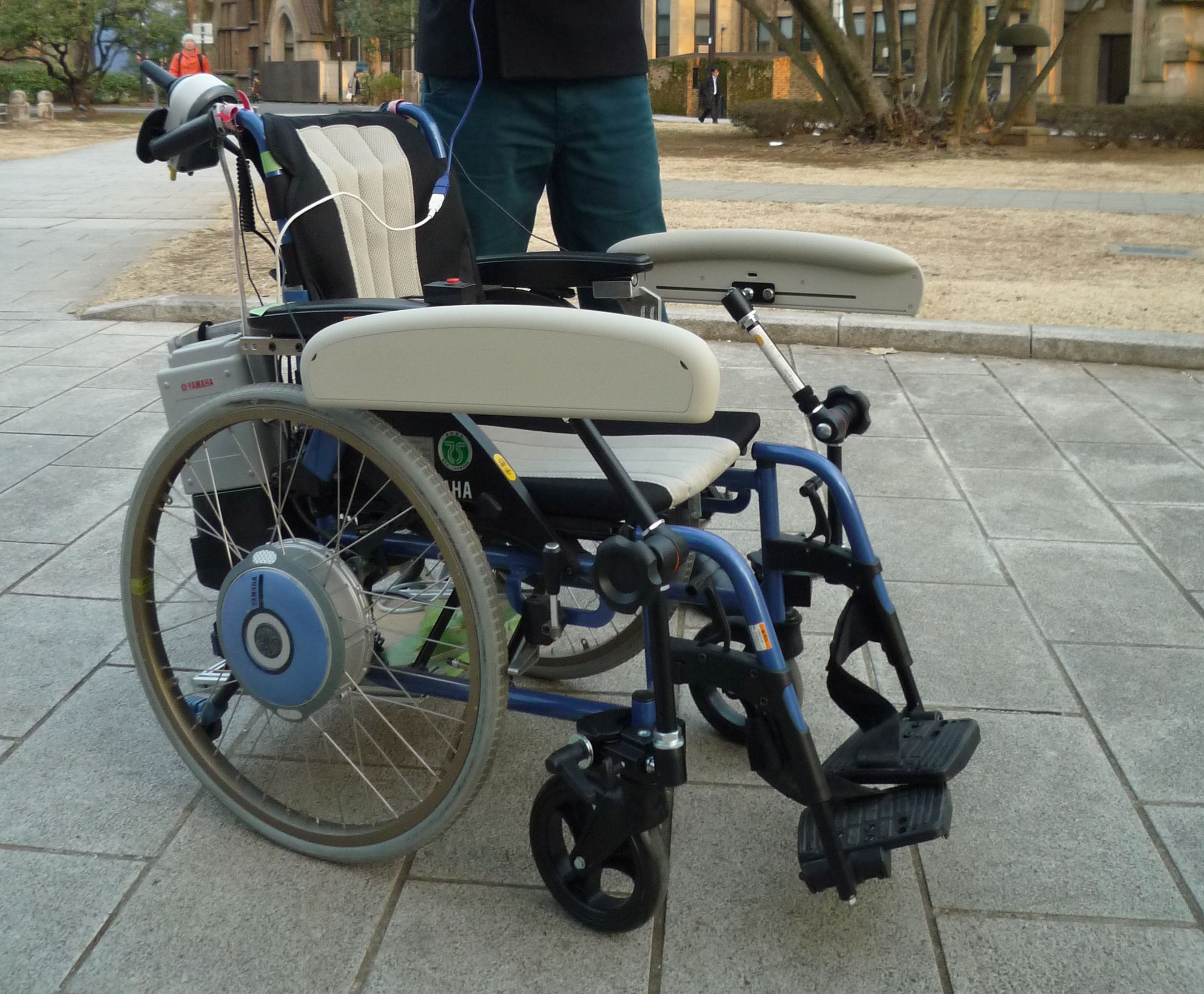
Research on development of movement supporting equipment for elderly people and disabled people
We are conducting surveys on the needs of elderly people and evaluating various matters of movement supporting equipment, such as introduction inhibition factor, use effect, psychological impact and so on. Moreover, based on those surveys, we are developing new movement supporting equipment such as electric wheelchair. For example, we have developed a new operation system that realizes movement activity and muscle strength maintenance at low load. One example is the development of a system, SLIDE FLEX, that operates using actions based on memory remembered by the body (= “procedural memory”) such as rowing motion of the upper limbs and walking motion.
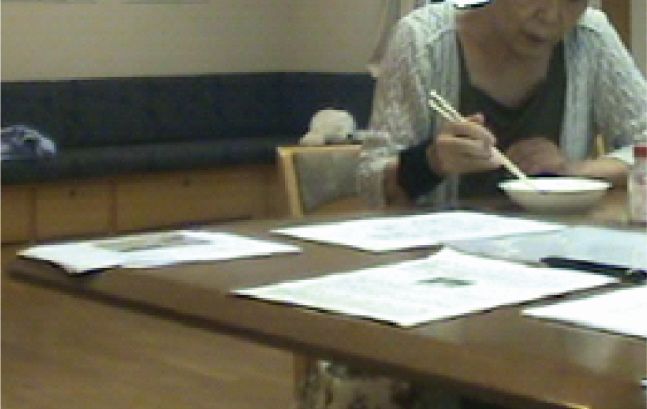
Study on independent living and QOL of elderly people
For elderly people living at home to continue independent living while maintaining the quality of life, support by human beings and support by goods is necessary. However, while there are problems such as delayed intervention due to refrain and invasion of privacy, there are many problems that excessive support not only deteriorates the quality of life of the person but also it hinders regional support. In this research, we aim to not only the elderly person himself but also family and carers provide timely, adequate and reasonable support by sensing information on residences such as residential environment and the behavior of people who live.
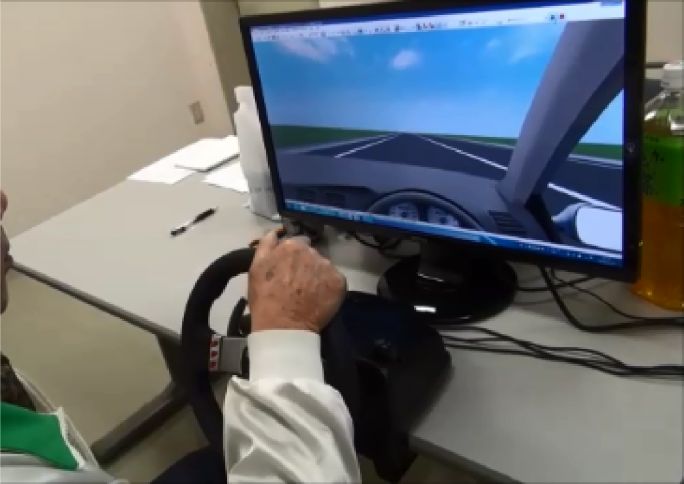
Study on the evaluation of spatial behavior and cognitive function
To drive moving vehicles such as cars and wheelchairs, you have to have visual functions, cognitive functions, motor functions and an ability to integrate those functions. In addition, only to walk, you have to have an ability to perceive space and approach targets. We specialize in transformation of movement which is seen when people drive or walk, especially elderly people or people whose cognitive function decreases. We develop systems to evaluate the decline of motor functions and cognitive functions when people move in spaces.
